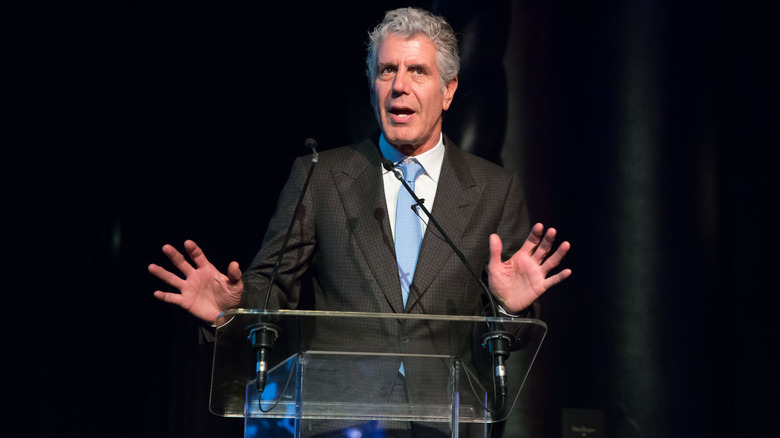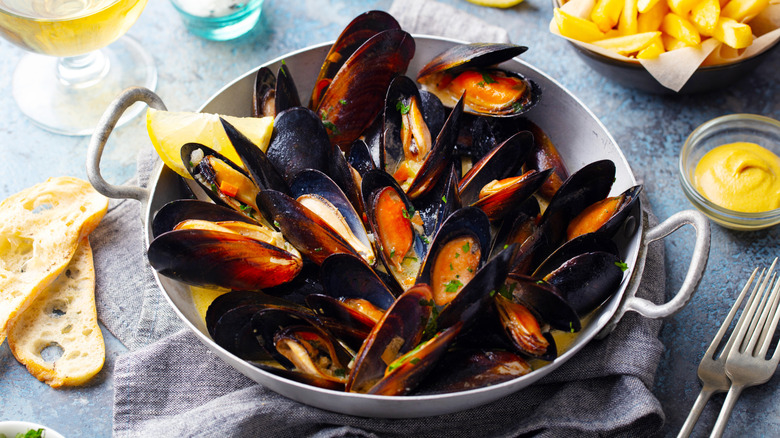The Disturbing Reason Anthony Bourdain Wouldn't Order Mussels At Restaurants
We may receive a commission on purchases made from links.
Mussels can be one of the most delicious and delicate dishes on a restaurant menu — that is, when they're oh-so-fresh, properly stored, and expertly prepared. However, they also have a bit of a bad reputation for being one of the menu items you shouldn't order at a seafood restaurant. In the late, great Anthony Bourdain's memoir "Kitchen Confidential," he states: "I don't eat mussels in restaurants unless I know the chef, or have seen, with my own eyes, how they store and hold their mussels for service. I love mussels. But, in my experience, most cooks are less than scrupulous in their handling of them." So listen up to Uncle Tony before you go diving into a steaming bowl of moules-frites, and consider these safety factors.
If the mussels smell fishy or simply "off," don't eat them, as the unpleasant odor is a sign that fish has gone bad. Just like oysters, fresh mussels should smell faintly like the ocean, that is, briny and inoffensive. Freshness is everything when it comes to bivalve mollusks as they're highly perishable, and must be kept alive until they're cooked. And if the restaurant doesn't go through them quickly enough, or stores them improperly, bacteria can begin to grow.
Mussels should always be kept cool and damp, ideally in a fridge, covered with a clean, wet towel. They should never be submerged in water, as they still need to breathe; a mussel that can't breathe will die, increasing your risk of microorganism contamination and food poisoning.
More tips for ordering mussels in a restaurant
Anthony Bourdain famously warned against ordering fish on Mondays, as chefs often ordered seafood on Thursdays to be ready for a busy weekend. Luckily, his advice was more than two decades ago, and not only has the modern dining world changed, but so have opinions on whether you should order restaurant fish on certain days. In 2016, Bourdain himself also admitted that seafood, and the industry itself, had come a long way since his earlier comments.
Of course, it's still a good idea to remain wary. If the restaurant specializes in seafood, and has a high turnover, they're much more likely to have fresh mussels every day. High-quality seafood restaurants take extra precautions to ensure their shellfish are safely handled. Don't be afraid to judge a restaurant at first smell — if it smells overwhelmingly fishy when you walk in, that's a red flag. As mentioned before, truly fresh seafood should not be overpowering.
Once you feel confident about your restaurant choice and you've ordered your mussels, there's one last safety check. There's long been a myth that if your mussel hasn't opened after cooking, you shouldn't eat it. However, that rule has now become a bit more complicated thanks to a seafood study conducted in Australia in 2004. The researcher found that some opened mussels could cause a risk of food poisoning, and some closed mussels, once forced open with a knife, were perfectly safe to eat. So at the end of the day, always smell your seafood before cooking — your nose is truly your best bet.

